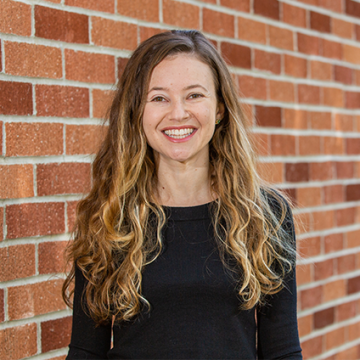
Melanie Wasserman
- Economics of Gender
- Labor Economics
Biography
Melanie Wasserman is a labor economist whose research focuses on the mechanisms underlying gender differences in educational, occupational and labor market outcomes. As an assistant professor of economics in the Global Economics and Management area at the UCLA Anderson School of Management, she teaches the Managerial Economics MBA course.
“I was drawn to economics for its way of thinking,” she says, pointing to its theoretical and empirical tools to tackle a broad range of topics. “Studying people through an economic lens entails analysis of decisions that are not typically thought of as ‘economic’ but can wield substantial influence over individuals’ economic lives.”
Women’s entry into the labor force is one of the most noteworthy changes in the U.S. labor market over the last 40 years, and this drives the direction and scope of Wasserman’s research. “Recently, we have witnessed a slowdown in the convergence of male and female economic outcomes, leaving substantial disparities in occupational choice, progression within occupations and compensation. My research sheds light on the mechanisms driving these gaps by examining the role of two forces: 1) whether men and women respond differently to the same workplace institutions and policies; and 2) whether there is differential treatment of men and women in the labor market. Assessing the validity and contribution of these two factors is essential because of their divergent policy prescriptions.”
A key question in her most recent work is whether a job’s non-monetary attributes influence an individual’s choice of job or career. Guided by questions around the number and flexibility of work hours a job requires, frequency of travel and what kind of work environment appeals to potential employees, Wasserman delved into the occupational structure and workplace policies of physicians. “My research revealed that reducing a medical specialty’s time demands during residency encouraged individuals to enter the specialty — and women were much more responsive than men. This finding prompted me to examine whether men’s and women’s disparate responses are fueled by their differing preferences regarding the timing of family formation.”
Education
Ph.D. Economics, MIT, 2016
B.A. Economics, UC Berkeley, 2007
Publications
“School Quality and the Gender Gap in Educational Achievement” (joint with David Autor, David Figlio, Krzysztof Karbownik and Jeffrey Roth) American Economic Review Papers & Proceedings, May 2016
“Family Disadvantage and the Gender Gap in Behavioral and Educational Outcomes” (joint with David Autor, David Figlio, Krzysztof Karbownik and Jeffrey Roth) American Economic Journal: Applied Economics, July 2019
“Up the Political Ladder: Gender Parity in the Effects of Electoral Defeats” American Economic Association Papers & Proceedings, May 2021
“Do Male and Female Students Use Networks Differently?” (joint with Yana Gallen) American Economic Association Papers & Proceedings, May 2021
“Hours Constraints, Occupational Choice, and Gender: Evidence from Medical Residents” Review of Economic Studies, 2023
“Gender Differences in Politician Persistence” Review of Economics and Statistics, 2023
“Does Information Affect Homophily” (joint with Yana Gallen) Journal of Public Economics, 2023
"Males at the Tails: How Socioeconomic Status Shapes the Gender Gap” (joint with David Autor, David Figlio, Krzysztof Karbownik and Jeffrey Roth) Economic Journal, 2023
Working Papers
“Informed Choices: Gender Gaps in Career Advice” (joint with Yana Gallen)
Press
https://www.washingtonpost.com/news/wonk/wp/2015/11/23/why-girls-do-so-much-better-than-boys-in-school/ New York Times : A Disadvantaged Start Hurts Boys More Than Girls
https://www.nytimes.com/2015/10/22/upshot/a-disadvantaged-start-hurts-boys-more-than-girls.html Washington Post : The serious reason boys do worse than girls
https://www.washingtonpost.com/news/wonk/wp/2016/01/28/the-serious-reason-boys-do-worse-than-girls/ VoxEU : Quality schools can boost boys’ achievement
https://voxeu.org/article/quality-schools-can-boost-boys-achievement New York Times : How Medicine Became the Stealth Family-Friendly Profession
https://www.nytimes.com/2019/08/21/upshot/medicine-family-friendly-profession-women.html Politico : Why don’t more women run for office?
https://www.politico.com/newsletters/women-rule/2019/05/17/why-dont-more-women-run-for-office-437888 University of Chicago BFI : Informed Choices: Gender Gaps in Career Advice
https://bfi.uchicago.edu/insight/finding/informed-choices-gender-gaps-in-career-advice/ The Economist : Demand, meet supply
https://www.economist.com/united-states/2015/11/28/demand-meet-supply New York Times : Study of Men’s Falling Income Cites Single Parents
https://www.nytimes.com/2013/03/21/business/economy/as-men-lose-economic-ground-clues-in-the-family.html
Women Consider Jobs Differently, and Employers Know It
Warren Olney navigates hours, work/life balance and pay with Melanie Wasserman.
Featuring: Melanie Wasserman, Assistant Professor of Economics